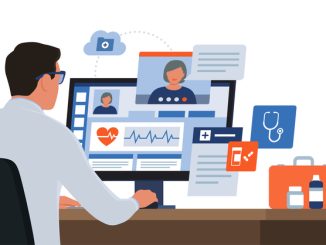
Mental health is one of the Royal College of General Practitioner’s (RCGP) clinical priorities – this means they are committed to ensuring the development and implementation of high-quality mental healthcare in general practice. We unpack their guidance and explore how, with a pandemic on our hands, stellar mental healthcare is more vital than ever. What can practice managers do to heed the RCGP clinical priority guidelines, and provide the best care for the mentally ill, amidst a scary and isolating time for us all?
Mental health in primary care is one of the RCGP’s clinical priorities. It will run for five years and focuses on increasing recognition of the vital role primary care plays in the management of mental illness. It aims to ensure that all primary care employees can provide high quality mental health care. Education and training are being developed, with an emphasis on honing listening skills and promoting multi-disciplinary training. The RGCP mental health priority also addresses the GP curriculum, core skills and personal development plans.
The RCGP acknowledges that mental health is a growing and ubiquitous problem in the UK. Approximately 1-in-4 of all people will experience some kind of mental health problem in the course of a year, which means most of us will have a brush with mental illness at some point in our lives – whether first-hand or with a loved one. Operating under the bio-psycho-social approach, the RCGP realises that mental wellbeing is not isolated from physical health and should be treated with as much rigor and respect as physical ailments. Their priority highlights this.
Twenty-three out of 30 of those who experience mental health problems will visit their GP, and many of these cases will be managed solely by primary care, in collaboration with other services. In their position statement on mental health in primary care, the RCGP demonstrates that an average GP list of 2,000 patients will have, at any one time:
- 352 people with a common mental health problem.
- 8 with psychosis.
- 120 with alcohol dependency.
- 60 with drug dependency.
- 352 with a sub-threshold common mental health problem.
- 120 with a sub-threshold psychosis .
- 176 with a personality disorder.
- 125 (out of the 500 on an average GP practice list) with a long-term condition with a comorbid mental health problem.
- 100 with medically unexplained symptoms not attributable to any other psychiatric problem.
Worryingly, GPs often feel under-resourced and overwhelmed when treating the mentally ill, highlighting that 10-minute appointments are not long enough to unpack the nature of a person’s mental health issue or, often, complex and comorbid mental health problems that require a layered and considered approach. This is why the RCGP priority is vital – identifying innovative ways to offer preventative, accessible and high quality primary mental health care.
The RCGP officially endorses the delivery model for collaborate care and support planning (CCSP) as key to delivering person-centred care in the context of the growing prevalence of multimorbidity, long term conditions and mental health problems. The position of the RCGP on what constitutes primary care mental health and the role of the GP and practice employees in managing mental health problems in primary care is that they recommend that:
- mental health is a core part of the business of primary care;
- the role of the general practitioner managing mental health problems should be that of the expert generalist, rather than developing specialist or extended interest roles;
- GPs and practice employees should champion the development of mental health care for under-represented, potentially vulnerable groups of patients, including children and young people, people with dementia, asylum seekers and refugees, travellers, offenders, people with intellectual disabilities and/or autism, the homeless – and be aware that there are higher rates of problems in socially excluded and vulnerable groups;
With the RCGP clinical mental health priority in mind, what can practice managers do to champion mental healthcare in their practices at this very difficult time?
- Devise a new mental health action plan in your practice. If patients are being urged to keep their distance from general practice, you should think of other ways patients can access GP mental health support – via online webchats, telephone consultations or video consultations, for example. Patients with mental illnesses may become distressed or disorientated by the increasingly complicated process of getting an appointment.
With COVID-19 spread prevention the leading priority in healthcare, the mentally ill will need to navigate online triaging or vetting in order to arrange a GP appointment. Consider ways to fast-track these patients through online or telephone automated replies or vetting procedures. Give them the option of pressing a number to put them straight through to a receptionist – even if this means they have to wait a little longer in a queue.
- Research shows that half a million older people regularly experience protracted periods of isolation, going at least five or six days a week without seeing or speaking to anyone at all. During the Coronavirus outbreak, these periods are likely to last much longer. With three months, or longer, of potential social isolation on our hands, it is vital that practices consider ways to reduce the impact of loneliness on vulnerable, self-isolating groups.
For example, you could arrange that a is call made to vulnerable/ self-isolating people on a regular basis to review their mental state and to offer guidance. This will demonstrate that your practice cares about the mental wellbeing of their patients.
- The coronavirus is bringing us many more health challenges than just infections – so your GP practice should prepare for the exacerbation of pre-existing mental health conditions, loneliness, or new onset of common mental health problems. More people may contact the practice in need of mental health support. As waiting lists for mental health talking therapies become longer where can you now signpost patients for more immediate support and what online resources are there to help with their condition?
- Consider hiring a mental health therapist to work directly through your practice. They will be able to administer talking therapies to patients as well as train clinicians and other staff.
Consider updating your website with a statement about the possible effects of CORVID-19 on mental health. Give clear instructions on how patients can arrange GP appointments regarding their mental health and maybe list some websites, such as the Mind website, which offer online resources for those who are struggling.
Now more than ever, we need to support each other through loneliness and fear. Your practice plays a vital role in maintaining the mental wellbeing of its patients – and so, in common with the RCGP, mental wellbeing should be made a clinical priority in your surgery.
To access the RCGP mental health toolkit, which provides resources for healthcare professionals to reference regarding the diagnosis and treatment of mental health problems including dementia and crisis care, click here.
For more information and advice concerning COVID-19 and loneliness, visit The Campaign to End Loneliness’s website
For more information about COVID-19 and mental illness, visit Mind.


Be the first to comment